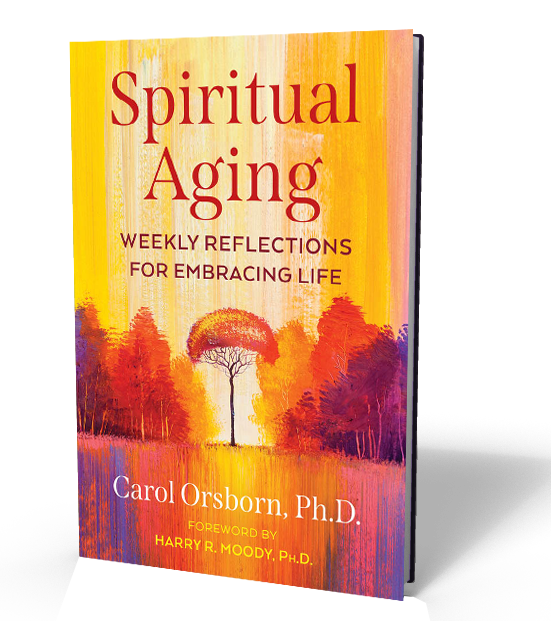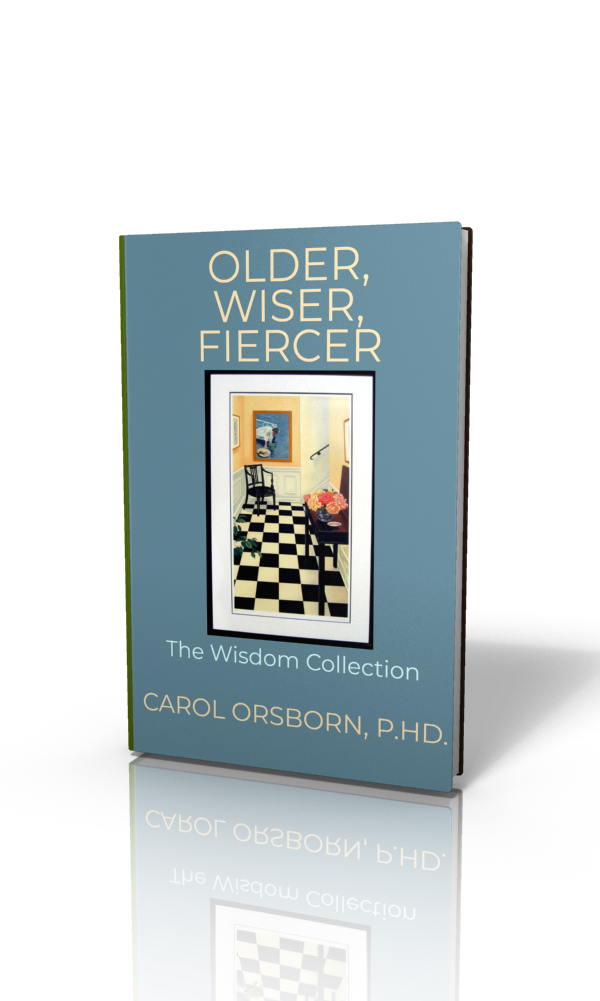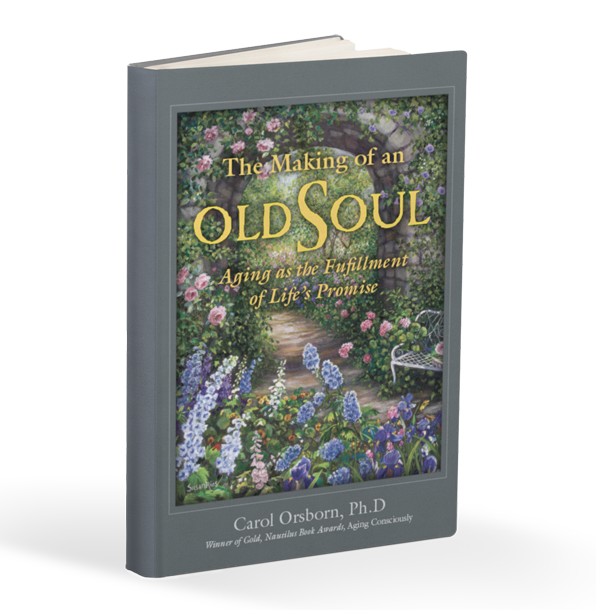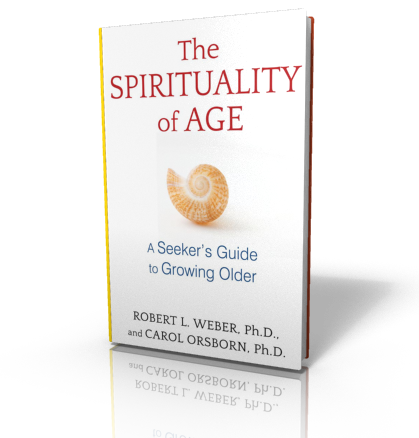Yet Another Way to Torture a Boomer: Reinvention
In my last blog, I took on the subject of Legacy Dysfunction (LD). You will recall that according to LD, it isn’t enough that you got educated, raised a family, figured out a way to make a living and tried to live a good enough life, past and present. For just as your midlife concerns start dulling down to a quiet roar, you are faced with societal pressures determined to drive you to seek meaningful ways to make sure you will be remembered, pretending that it’s altruism that’s driving you—not ego.
Today, I take on LD’s closely related cousin: Reinvention.
We Boomers are suckers for reinvention. Of course, none of us wants to be sidelined or marginalized. And so, when mainstream society rejects the identity/role and position we worked so hard to establish over the course of our lives, we jump on the reinvention bandwagon.
The mantra goes like this: dust off your old dreams or look around to find something worthy of you that you can feel passionate about. And, oh yes, it helps if what your heart is telling you to do matches what society actually wants from us—especially if you hope or need to get paid. All you need to do is take your strengths, talents and dreams, shuffle them into new variations of what used to work for you but doesn’t any more, and re-offer your re-newed self on the re-invented marketplace.
For example, how about all those folks downsized from their jobs in advertising and public relations who have been encouraged by the career experts to hang up their shingles as experts helping companies market to Boomers? Aside from those handful of clients who are little more than ambulance chasers offering aging Boomers drugs and assisted living devices, do you see many companies lining up to help us sell us their hip new cars, cruises, cosmetics or fashion? Didn’t think so…
And God forbid your dream is telling you the time has finally arrived to reinvent yourself into the writer determined to find a publisher for your (pick one) memoir, book of poetry or great American novel. In other words, if you do want to reinvent yourself, and need to be paid, it would be tons better if when you looked into your heart, you were to find not an artist huddling inside, but rather, a computer programmer or home health aid.
So is the situation hopeless? For some, the old pieces will indeed be shuffled miraculously into a new satisfying order, and will actually produce both emotional fulfillment and necessary income. But for the rest of us—including those of us who are fortunate enough not to need additional sources of income to survive–reinvention is not the answer. At its worst, in fact, it is the problem, seducing us to extend the productive years of our midlife as long as possible, stealing valuable time and energy from the real promise, power and potential of the genuine life task awaiting us on the far side of midlife.
Just what is this genuine life task? To get a better handle on this, let’s take a brief survey of adult development theory. We are born without roles or identities. We just are. But it doesn’t take long before our parents, authority figures, church, education system, media and other cultural influences begin programming us with beliefs about ourselves and the world. By the time we can walk and talk, we’ve already gone a long way towards formulating a persona: what it takes to succeed, or at least, survive, in this world. At some point, also early on, but reaching a fever pitch around adolescence, we embark on our first of a long series of serious reinventions, accepting and rejecting aspects of our original programming and going through the arduous, challenging process of assembling what will be our adult identity.
For society (and us) to function efficiently, this is not an option. We’ve got to begin to figure out where and how we fit in. Will we become educated, raise a family, do those things professionally and personally that garner success? We need to learn the ropes of what it takes to keep the machine operating. And sometimes, if we’re lucky, there are numerous overlaps between what we truly want for ourselves and what it takes to survive. But for many of us, there are also compromises made, passions discarded, authenticity de-valued.
Again, if we are fortunate, the good outweighs the bad and so it is that we make our ways through midlife and beyond, finding ourselves, at last, at the outer edges of the lifelong identity-building project. Now what? It is both exhilarating and terrifying to find yourself no longer compelled to act out of either your original programming or your lifetime of persona creation. It is innate, normal and healthy as we age to organically begin caring less about what others think of us, to pay heed to our authentic urges regardless of whether or not they fit into some pre-conceived notion of success, to be weird or wild or eccentric, or whatever it is we discarded along the way and would dearly, deeply love to reclaim. It’s called freedom, and hard-won freedom, at that.
And now here’s the kicker. For the Boomer generation, just as we arrive at this moment, rather than revel in our new life stage, even if it means falling into the unknown of the void for the time-being (the necessary cauldron of true freedom) we are asked to reinvent ourselves once again in order to create meaning and take comfort in that which is so familiar to us: climbing the identity creation mountain all over again.
What is really called for, I would argue, is not reinvention but rather uninvention. Post-midlife, we finally have the opportunity to recognize, witness, outgrow and ultimately discard the roles, identities and positions we have assumed over the course of our lives and, get this, have the courage not to rush to comfort ourselves and others in a simple reordering of all the old pieces, a creation dedicated to keeping the old ego intact. Rather, God willing, one gets to a point, where one does not want to “re” anything anymore and would rather, bravely, drop all the old outlived skins away to discover something authentic, original, inside. Indeed, for those of us brave enough to look aging in the face, we may be blessed with the understanding that on the other side of reinvention, itself—in fact, in its exact opposite, one finally has the potential to find the key to meaning, peace and joy we’ve been yearning for.
It’s true, discovering your long-buried capacity to experience life in the present moment—sitting by the bank of a river, spending time with a good friend, writing for the sheer pleasure of self-expression—may not find their measure in either status recognition nor financial reward. But neither do many of the reinvention fantasies that sap our life blood and have the unfortunate ability over time to be turning even the best of us into 80-year-olds seeking career counseling and feeling guilty because we’re not fulfilling our true potential.
Time to reinvent reinvention, to discover who are we when we finally find it in our hearts to let the outgrown constructions really, truly drop away and allow ourselves to linger with curiosity rather than rev ourselves right back up into the higher gear reinvention demands of us. My new mantra for our generation: Not reinvention. Uninvention.
Feel free to share this providing proper credit to Carol Orsborn
and a link to CarolOrsborn.com.








